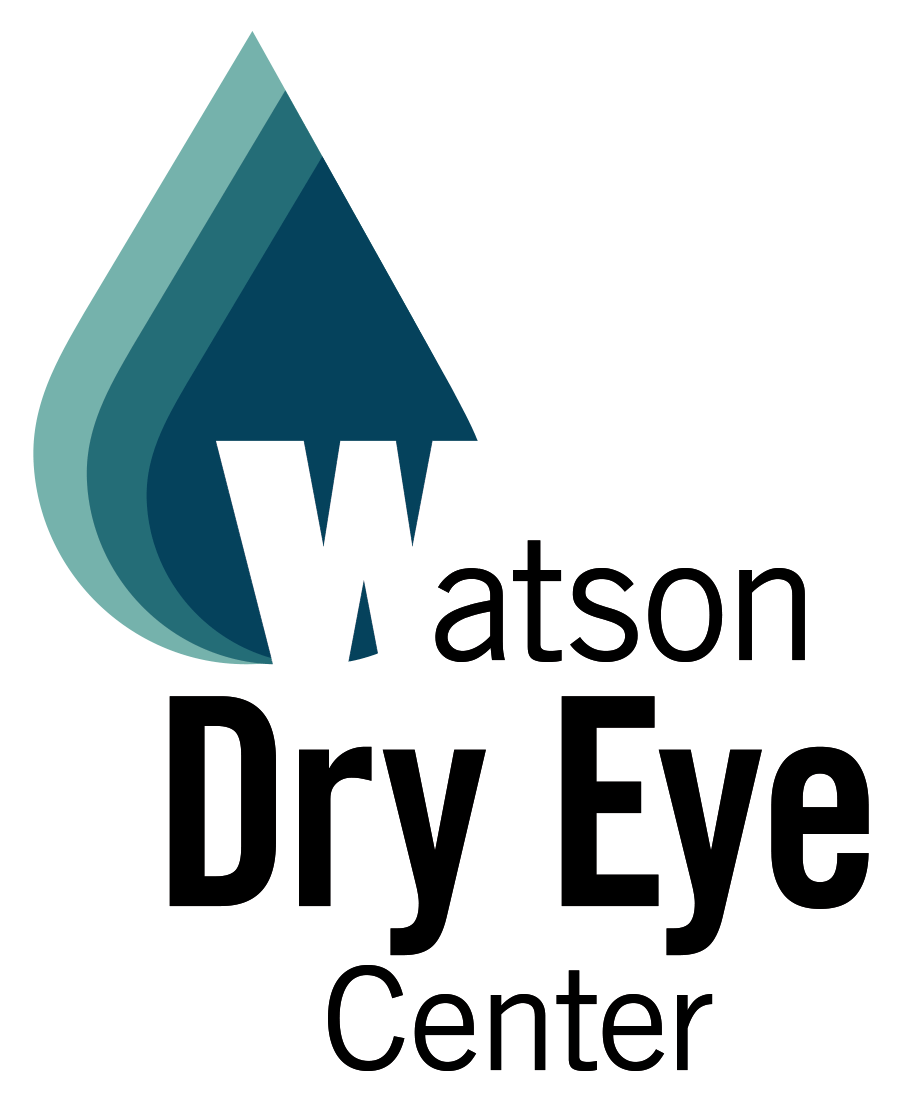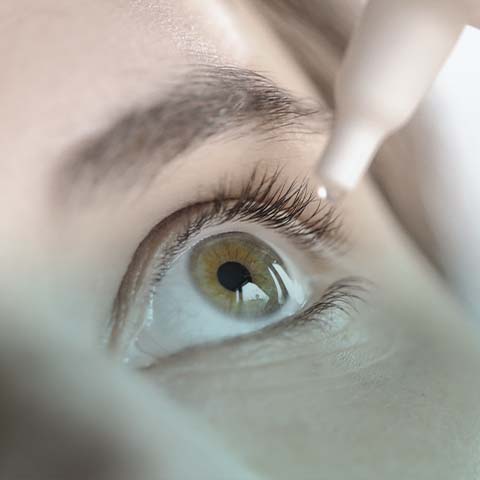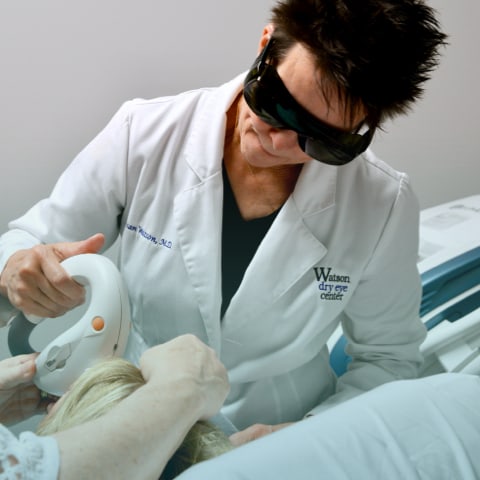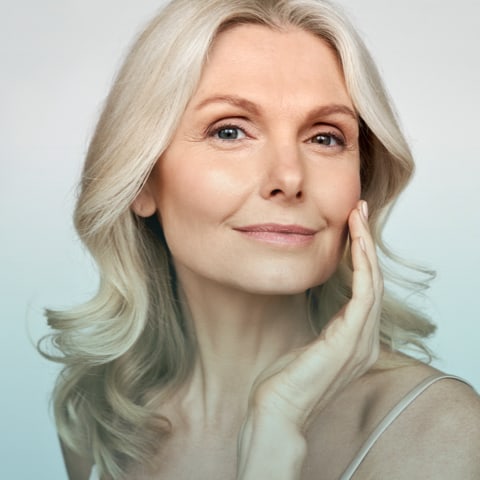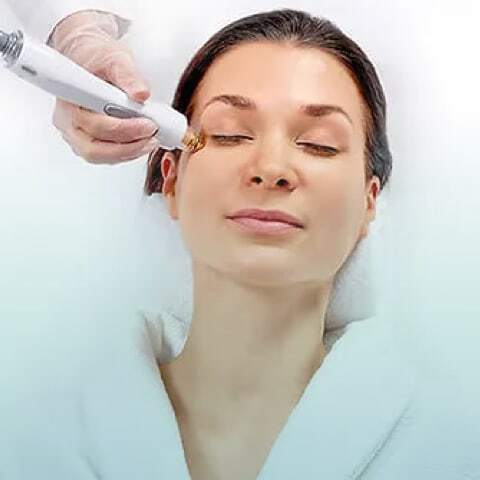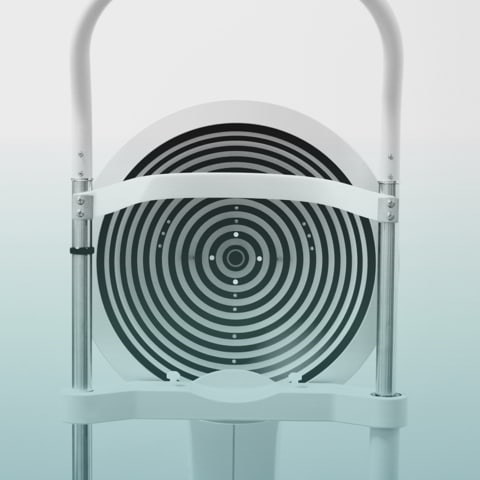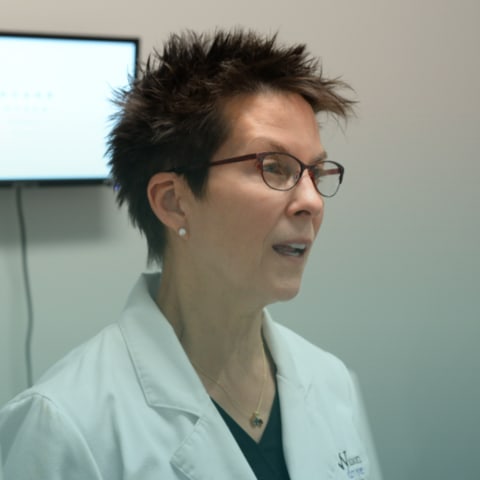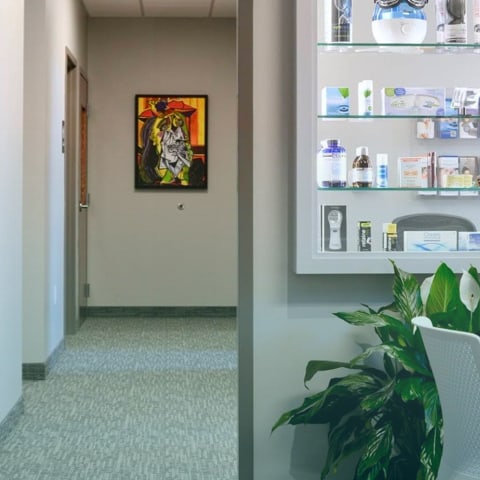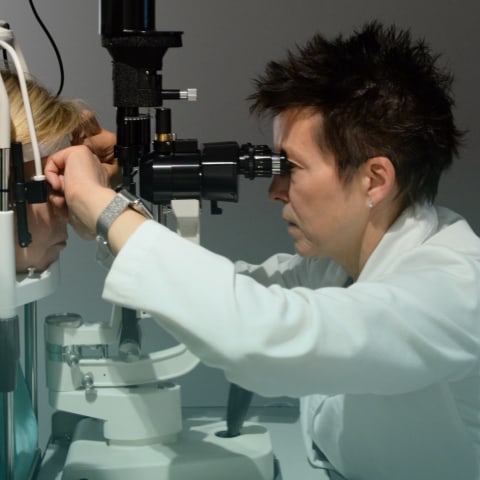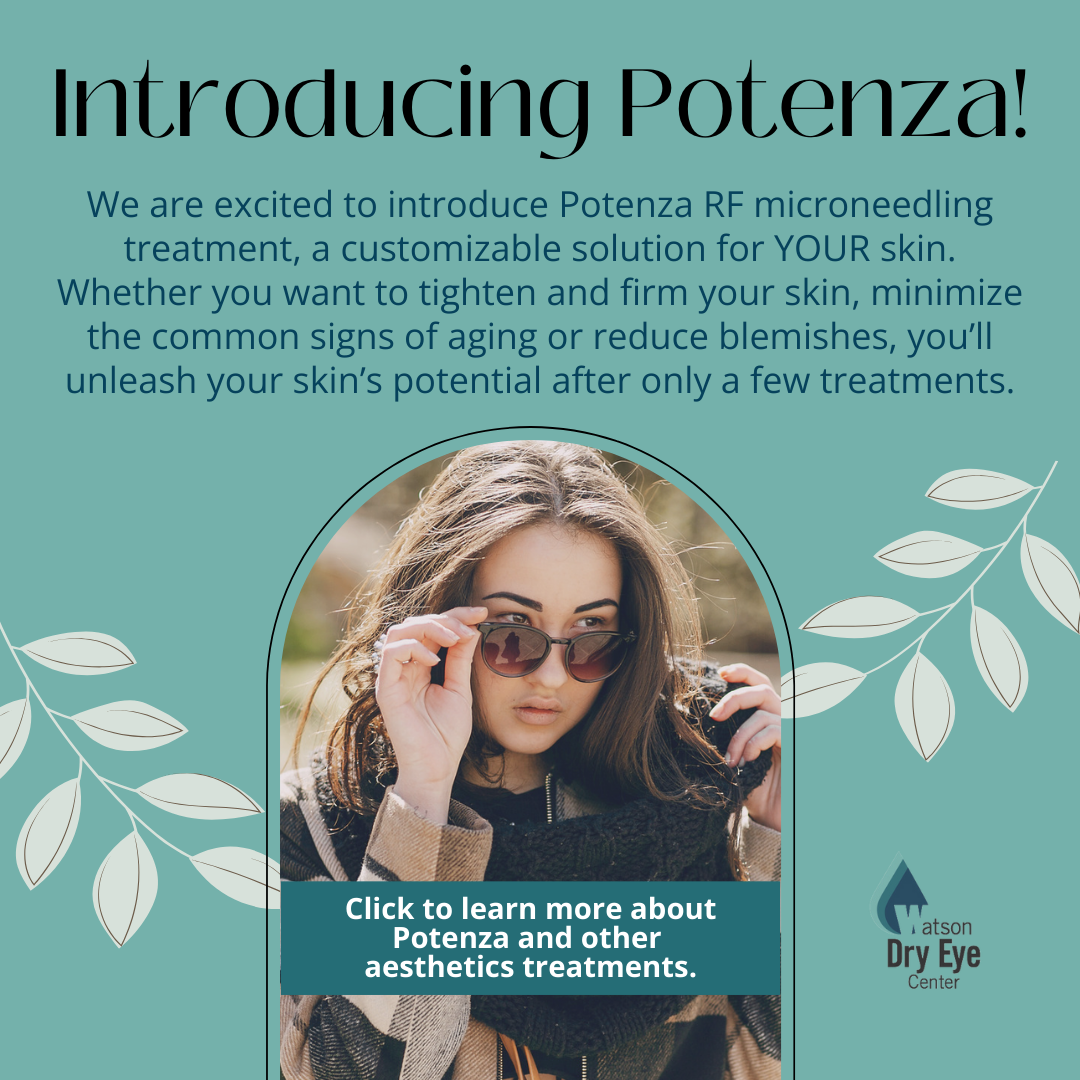
What is Dry Eye?
Dry eye disease is a common condition that affects the eye’s ability to keep itself lubricated. The problem occurs within the eye’s tear film. If a patient’s tear film isn’t able to produce and maintain high-quality tears, it’s possible the patient will begin to experience the irritation and symptoms of dry eye.
Dry eye can be caused by a variety of factors. Some limit the eye from producing tears, while others increase the evaporation speed of the tears. Factors such as diet, dry air, allergies, or old age can all contribute to a patient’s risk of dry eye.
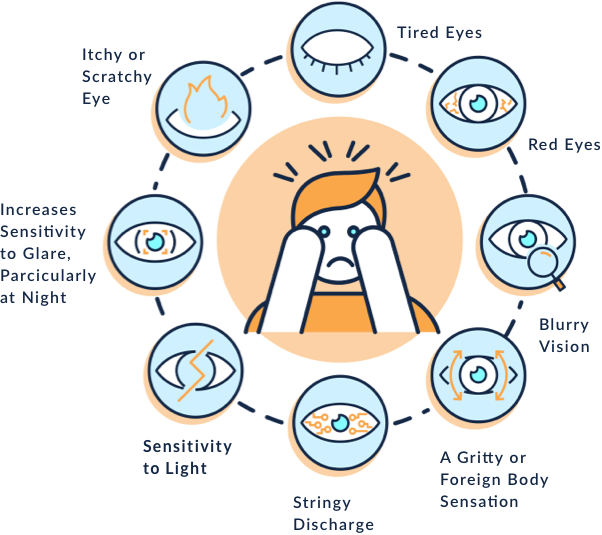

What is OptiLight by Lumenis?
OptiLight by Lumenis is a light-based, non-invasive treatment done in the area below the eyes to manage dry eye. The first and only IPL FDA-approved for dry eye management.
The treatment is safe, gentle, and is backed by more than 20 clinical studies.

How Does It Work?
OptiLight uses precise pulses of light to reduce the inflammation that is typically associated with dry eye disease, improve tear break-up time, and increase meibomian gland functionality.
This application can significantly relieve dry eye indicators and has a multi-factorial effect, including:
- Increasing tear break-up time
- Reducing the amount of demodex mites and bacteria living around your eyes
- Eliminating blood vessels that contribute to inflammation
- Improving meibomian gland functionality
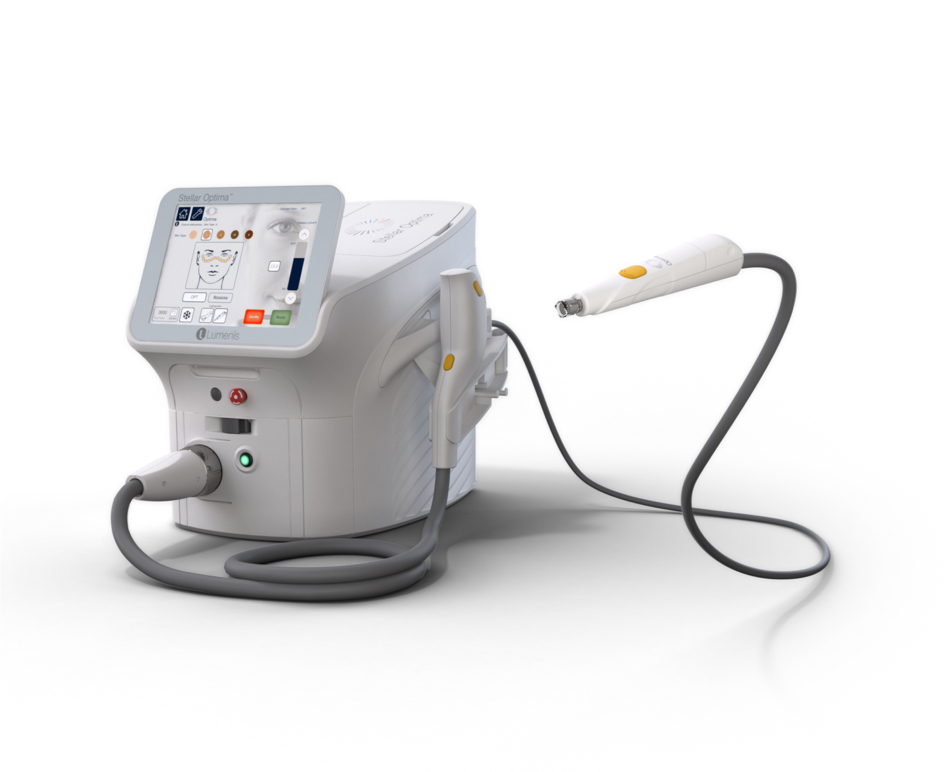
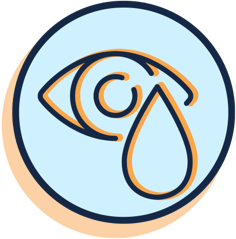




What to Expect
Before Your Treatment
Before your treatment, you’ll need to pick up a prescription for Prolensa and bring it to each of your IPL appointments. Leading up to your treatment, it’s also recommended that you:
- Avoid excessive sun exposure for 2–3 weeks and wear mineral-based sunscreen daily
- Avoid skin irritants like acne and Retin A creams for 72 hours before treatment
- Ensure you have a clean shave the morning of your treatment if you have facial hair
- Don’t wear makeup or moisturizer on the morning of your treatment
During Your Treatment
This treatment is fast and simple. During the treatment your doctor will apply a coupling gel on the treatment area and cover your eyes with shields.
As light is applied to the skin, you may experience a warm sensation. The treatment is gentle with minimum discomfort, and will only take 10–15 minutes.
OptiLight is often followed by meibomian gland expression.
After Your Treatment
Following treatment, you may experience a mild sunburn-like sensation on the treatment area. This sensation typically goes away within 2–3 hours. In rare cases, blisters or scars may form.
You should continue avoiding sun exposure for 2–3 weeks after treatment and keep using a mineral-based sunscreen. Similar to your treatment preparation, avoid skin irritants for 72 hours following IPL.

Will the OptiLight Work for Me?
While OptiLight by Lumenis is an effective dry eye management solution, we want to make sure it’s right for you. We do not recommend this treatment if you:
- Suffer from aqueous deficiency dry eye (rather than evaporative dry eye or meibomian gland dysfunction)
- Have a history of keloid scarring
- Have severe scarring around your eyes
Ultimately, your doctor is the only person who can determine whether this option is right for you. During your next appointment, ask us if you are a good candidate for OptiLight by Lumenis.
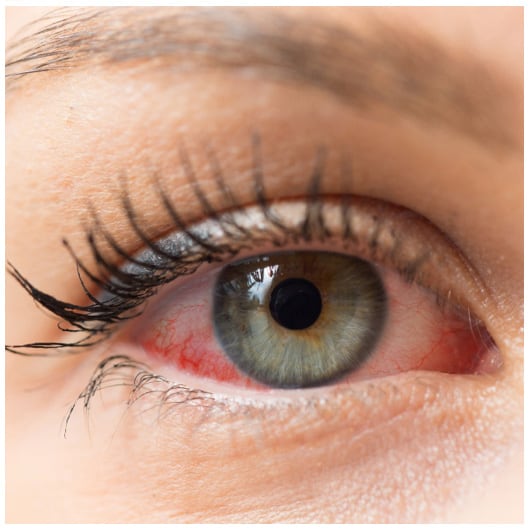
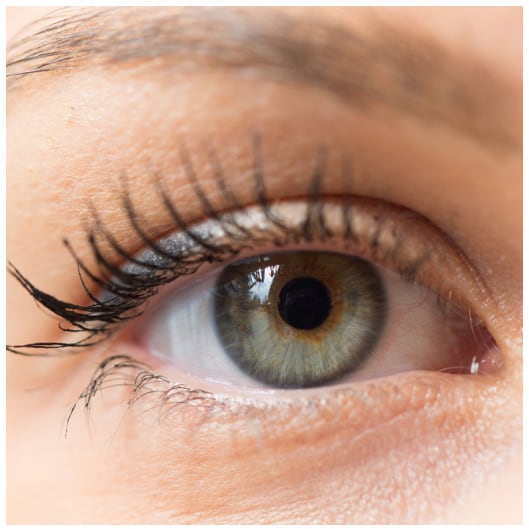

You Don’t Have to Live With Dry Eyes Anymore
Dry, irritated eyes can be managed with a new treatment that brings comfort and can restore quality of life. Visit your eye doctor to get an accurate diagnosis and a treatment plan tailored to your needs.
Our Location
Watson Dry Eye Center is located in Raleigh, right on the corner of Forest Pines Drive and Common Oaks Drive. There’s lots of parking available right in the lot right in front of our practice.
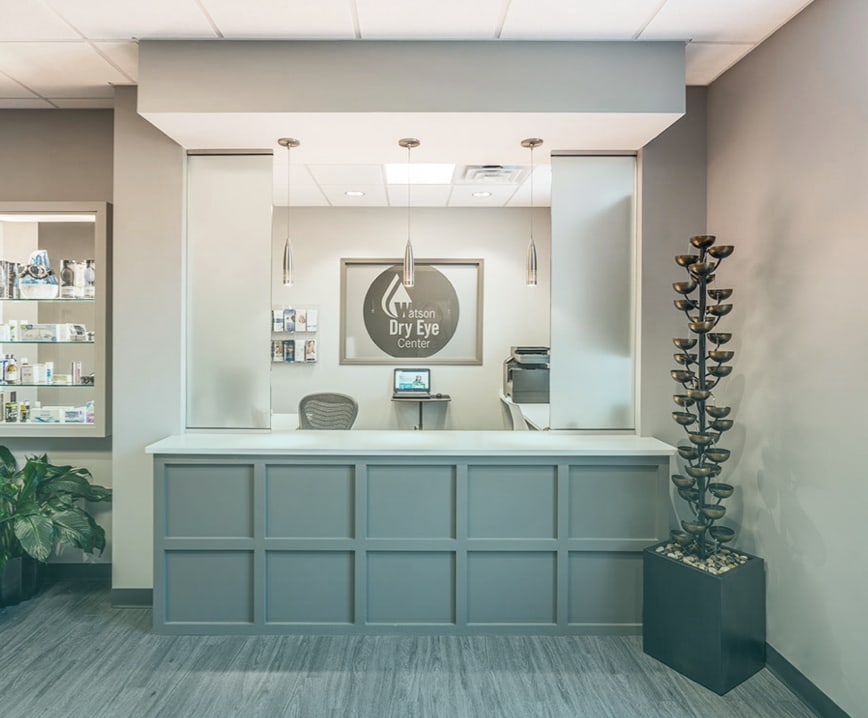
Our Address
- Suite 120
11081 Forest Pines Dr. - Raleigh, NC 27614
Contact Us
- Phone: 252.231.0424
- Fax: (252) 231 0580
- Email: [email protected]
Clinic Hours
- Monday: 8:00 AM – 5:00 PM
- Tuesday: 8:00 AM – 5:00 PM
- Wednesday: 8:00 AM – 5:00 PM
- Thursday: 8:00 AM – 5:00 PM
- Friday: Closed
- Saturday: Closed
- Sunday: Closed



Help Your Teen See & Be Seen
(Comfortably)


Our teenagers are spending more time every day on their screens. Dry eye symptoms can be exacerbated by excessive screen time which is becoming increasingly common among teenagers and young adults.
Your teen doesn’t have to struggle with dry eye symptoms. At Watson Dry Eye Center, we have an incredible team that specializes in dry eye treatment and management.
Their education and social life are the center of their world and dependent on clear, comfortable vision. Allow them to focus on it with dry eye treatment.
Get ahead of dry eye by booking an appointment with our team.

See Our Google Reviews

Our Blog
Can Eye Fatigue Cause Dizziness?
Dry Eye Disease, Eye ConditionYes, eye fatigue can contribute to feelings of dizziness when your brain receives conflicting information from your tired eyes. […]
How to Get Rid of Wrinkles Around Eyes?
Aesthetics, WrinklesTreatments like Potenza RF Microneedling can help your body produce more collagen, supporting naturally rejuvenated skin texture and firmness around the delicate eye area.
[…]
How Long Does Meibomian Gland Dysfunction Last?
Eye Condition, MGDMeibomian gland dysfunction is a long-term condition that requires consistent management, but you can achieve long-term relief with proper care. […]
Can Eye Fatigue Cause Dizziness?

Yes, eye fatigue can contribute to feelings of dizziness when your brain receives conflicting information from your tired eyes. […]
How to Get Rid of Wrinkles Around Eyes?
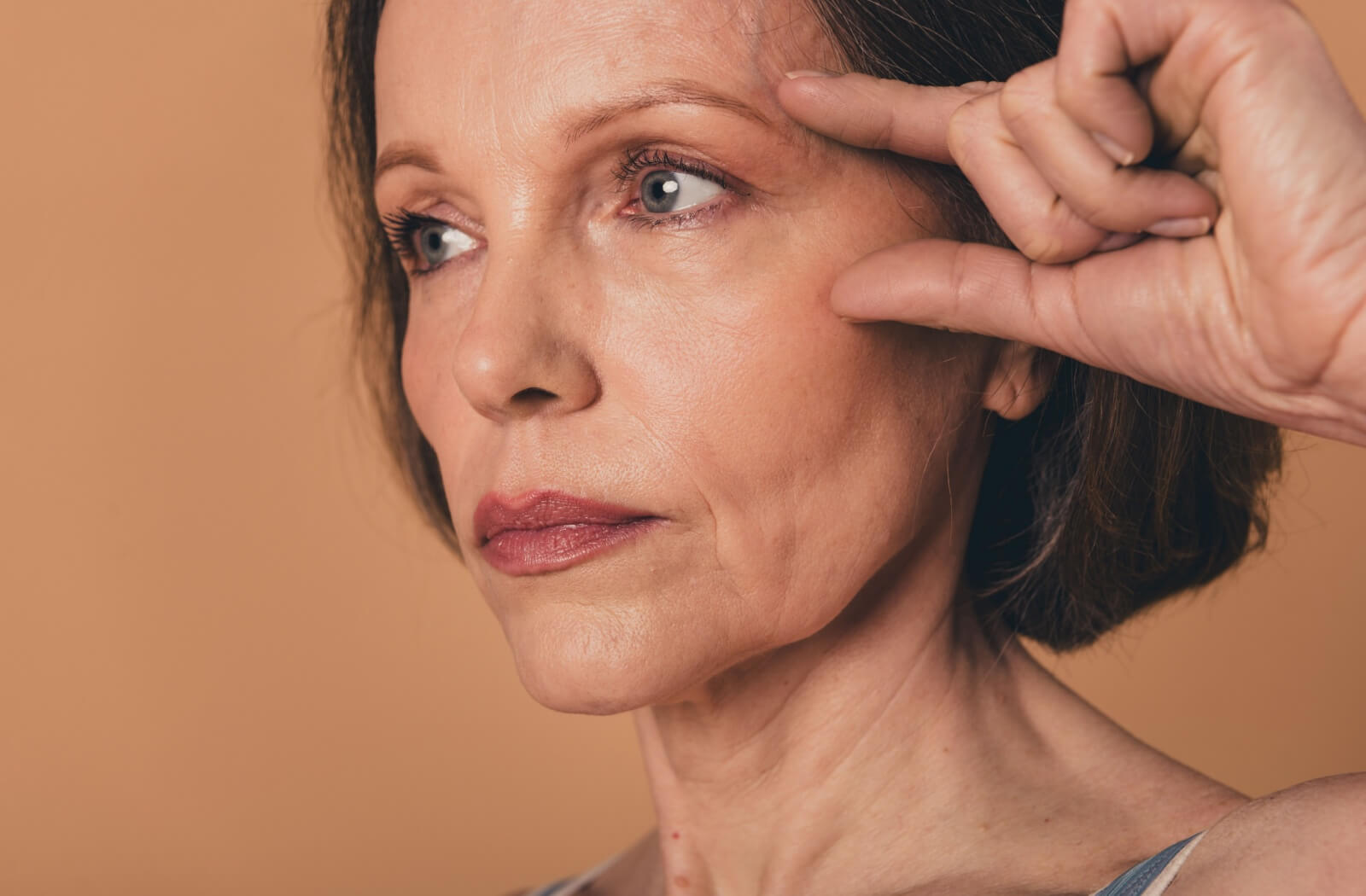
Treatments like Potenza RF Microneedling can help your body produce more collagen, supporting naturally rejuvenated skin texture and firmness around the delicate eye area.
[…]
How Long Does Meibomian Gland Dysfunction Last?
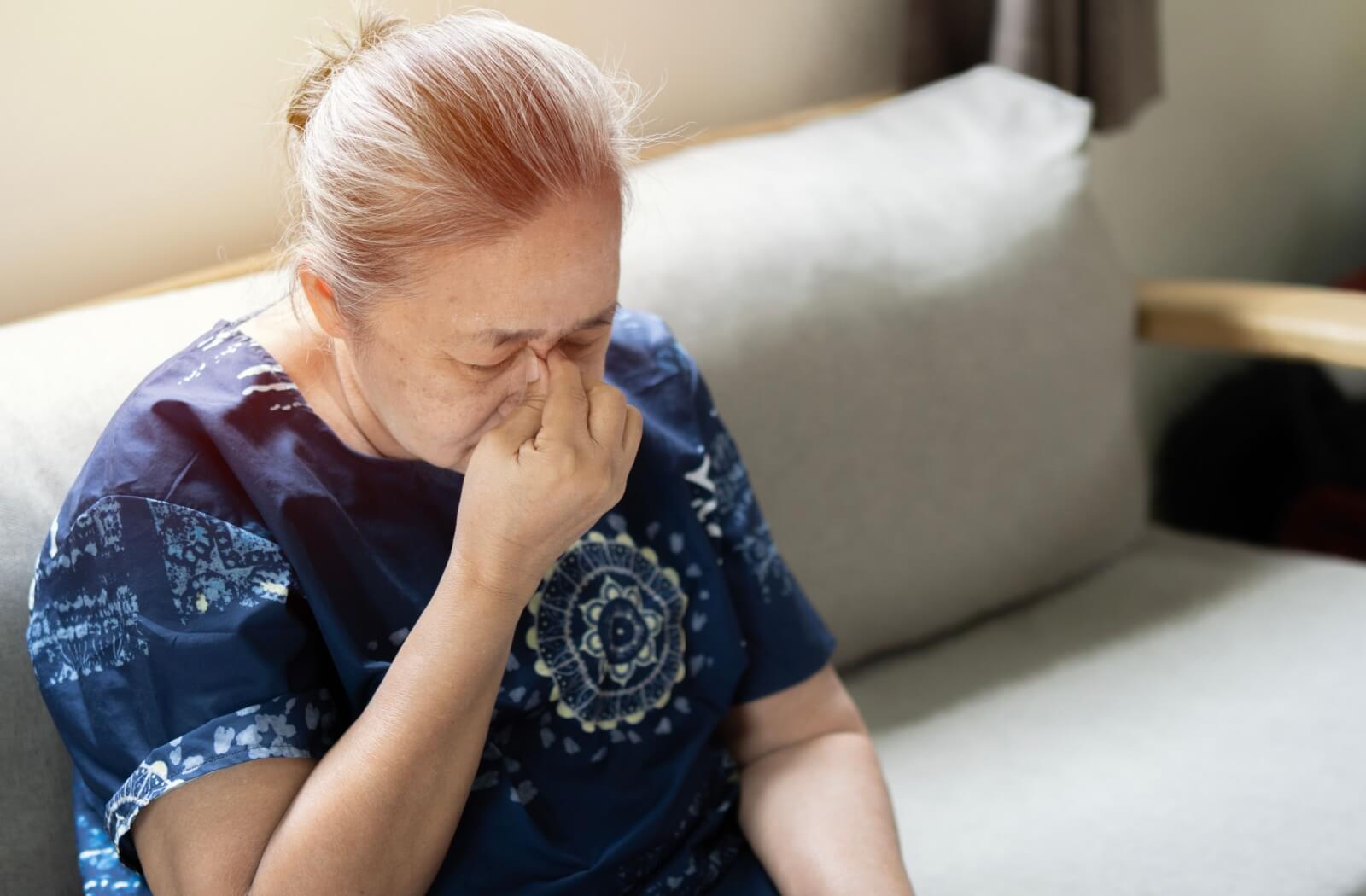
Meibomian gland dysfunction is a long-term condition that requires consistent management, but you can achieve long-term relief with proper care. […]
